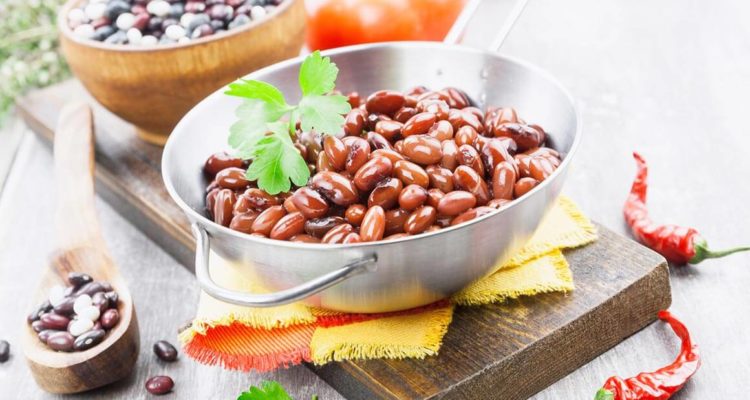
Seven reasons why you need to include beans in your diet
0
Beans are cheap, filling and versatile, and beans themselves contain a lot of fiber, protein and other nutrients that support good health.
Here are a few reasons why you should include beans in your diet.< /p>
Rich in folic acid.Folic acid (vitamin B9) helps the body produce healthy red blood cells, which carry oxygen from the lungs to other tissues, and helps the body convert carbohydrates into glucose, which cells use for energy. In addition, its adequate intake is crucial in early pregnancy, as it helps reduce the risk of birth defects.
Helps maintain weight and lose weight.Beans are one of the most useful foods for weight loss: they are low in fat and calories, but high in protein and fiber. Protein and fiber are the two most important nutrients for weight loss – they help you feel full for a long time, help you not to overeat.
Good for the heart. Beans contain many nutrients, that support the work of the heart – folic acid, magnesium, fiber. Its use helps to reduce the blood level of the amino acid homocysteine. With a high content of homocysteine in the blood, a person becomes prone to heart disease and stroke.
Lowers cholesterol. The fiber in beans, especially soluble fiber, can reduce the absorption of low-density lipoprotein (LDL) into the bloodstream. LDL is also known as “bad” cholesterol, which can accumulate on the walls of arteries, causing them to harden and narrow, resulting in hypertension.
Regulates blood sugar levels. Beans help control blood sugar levels thanks to soluble fiber, which slows the absorption of sugar into the blood. In addition, the leguminous product has a low glycemic index (GI), which means that it does not cause a sharp spike in blood sugar.
Protects against inflammation. One of the best characteristics of beans and other legumes is the large number of vitamins contained in them, such as vitamins C, B1, E and K. These vitamins act like antioxidants, protecting healthy cells from inflammation and damage. Inflammation and cellular damage underlie chronic diseases, including cancer.









Leave a Reply